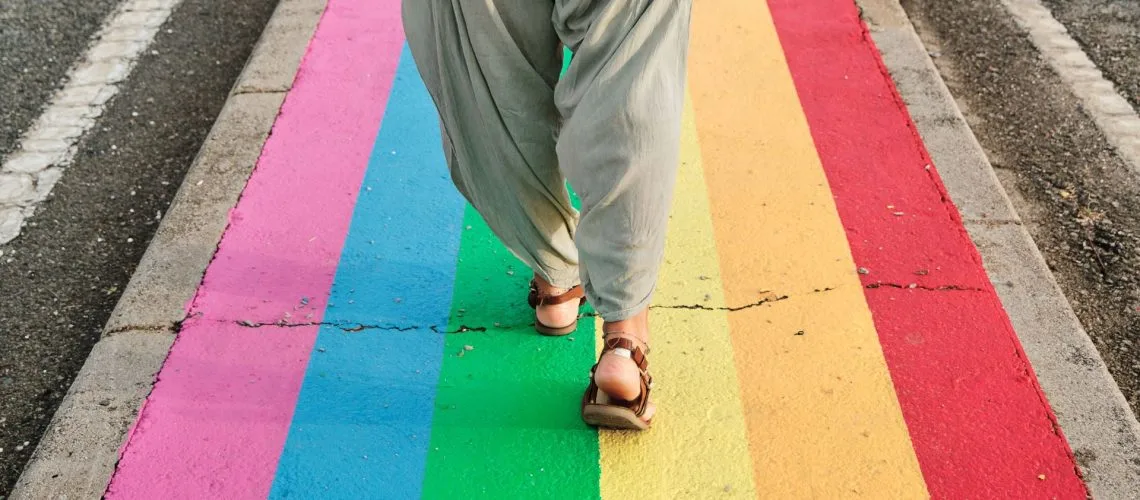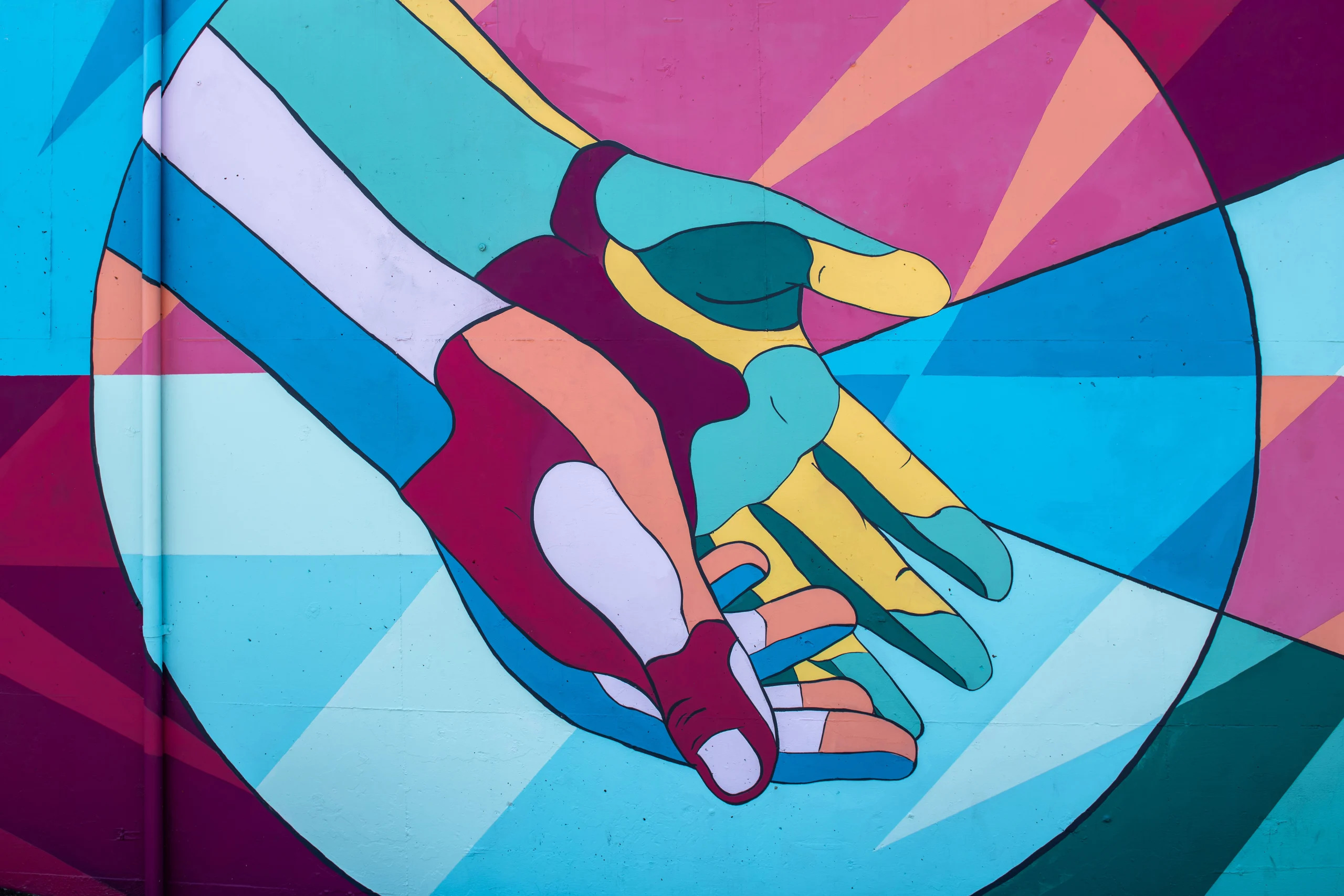Many LGBTQ people are in a constant discovery process around gender identity or sexual orientation. Both of those constructs are on a spectrum, and there are times when we may feel we have characteristics of one side of the spectrum versus another, and that can change regularly. We may hear various terms along our journey, and wonder if those apply to us. One of those terms related to gender identity we hear is “intersex”. We’re here to break down what intersex means, and how it relates to genders, the body, sexual anatomy, and more.
What is Intersex?
The definition of intersex according to GLAAD is “someone with one or more innate sex characteristics, including genitals, internal reproductive organs, and chromosomes, that fall outside of traditional conceptions of male or female bodies. Those variations are also sometimes referred to as “Differences of Sex Development.”
Intersex is a term used to describe a person whose biological sex characteristics do not fit typical male or female classifications. Intersex conditions are a natural variation in human biology, and people with intersex traits have existed throughout human history and across cultures. However, the stigma, shame, and medicalization of intersex bodies and identities have led to widespread discrimination and human rights violations.
Biological sex is typically determined by chromosomes, hormones, and anatomy. Most people have either XX chromosomes and female reproductive anatomy or XY chromosomes and male reproductive anatomy. However, intersex traits can arise when these biological factors do not align neatly into male or female categories.

Ways Intersex Traits May Manifest
- Chromosomal variations: Some people have sex chromosomes other than XX or XY, such as XXY or XO.
- Hormonal variations: Some people’s bodies produce hormones that do not match their chromosomes or reproductive anatomy, such as high levels of testosterone in a person with a vagina.
- Genital variations: Some people’s genitalia have characteristics of both male and female anatomy, such as a clitoris that looks like a penis or testes that are not in the typical scrotum location.
Differing from a nonbinary person or someone struggling with gender nonconformity, intersex is a term used to describe individuals who are born with physical, hormonal, or genetic characteristics that do not fit typical definitions of male or female, or their chromosomes may not align with typical male or female configurations. In some cases, intersex traits may not become apparent until later in life, such as during puberty or when attempting to conceive a child.
It’s important to note that being intersex is a naturally occurring variation, and it’s not a medical disorder. Intersex individuals have the right to make informed decisions about their own bodies and medical treatment, and to live their lives in accordance with their own gender identity.
Challenges of the Intersex Community
There are many different intersex conditions, and the experiences of intersex people can vary widely depending on their specific traits and how they are treated by society and the medical community. Historically, intersex people have often been subjected to forced surgeries and other medical interventions aimed at “fixing” their bodies to conform to binary sex norms. These interventions can be traumatic and have long-lasting physical and psychological effects.
In recent years, intersex activists have been advocating for the recognition and acceptance of intersex identities and bodies. They argue that intersex people should be able to make their own decisions about their bodies and identities and that medical interventions should be limited to cases where there is a clear medical need. They also call for an end to the stigma and discrimination that intersex people often face.

Intersex refers to a range of natural biological variations that exist outside of typical male and female classifications. Intersex people have unique experiences and identities, and it is important to recognize and respect their rights to bodily autonomy and self-determination. By working towards greater awareness and acceptance of intersex diversity, we can create a more inclusive and just society for all.
The experience of being intersex can vary widely depending on the specific intersex condition and how the individual and their environment react to it. However, there are some common experiences that many intersex people share.
One of the primary challenges that many intersex people face is a lack of social and medical recognition. In many societies, there is a strong binary gender system in which people are expected to fit into one of two categories: male or female. Intersex people, who may have ambiguous or non-conforming physical sex traits, can face stigma, discrimination, and isolation as a result. They may be subject to bullying, harassment, or violence, and may struggle to find acceptance and understanding from others.
Additionally, many intersex people have experienced medical interventions aimed at “normalizing” their bodies, often without their consent or understanding of the implications. This can include surgeries to remove or alter sex organs, hormone therapies, and other treatments. These interventions can have serious physical and emotional consequences and can lead to feelings of shame, betrayal, and mistrust towards medical professionals.
The Intersex Community and Mental Health
Intersex people may also experience challenges in their personal relationships and sense of identity. They may struggle to reconcile their physical traits with their gender identity, or they may feel pressure to conform to societal expectations around gender and sexuality. This can lead to confusion, anxiety, and feelings of isolation.
Despite these challenges, many intersex people also report a sense of resilience, strength, and community. By connecting with other intersex people, sharing their stories, and advocating for greater acceptance and understanding, intersex individuals are working towards a more inclusive and just society for all.
Intersex people may experience significant mental health challenges as a result of the stigma and discrimination they face in society. Stigma, in this case, refers to negative attitudes and beliefs that others hold about intersex people, which can lead to exclusion, harassment, and even violence.
Intersex people may experience feelings of shame, guilt, and low self-esteem due to the stigma associated with their condition. They may also struggle with anxiety, depression, or other mental health issues related to their experiences of trauma or discrimination.

Seeking mental health support can be crucial for intersex individuals in navigating these challenges. Therapy or counseling can help intersex people process their emotions, build resilience, and develop coping strategies for dealing with stigma and discrimination. It can also provide a safe space to explore their identity, relationships, and sense of self.
It is important to note that not all mental health professionals may be familiar with intersex issues or have experience working with intersex clients. It may be helpful for intersex individuals to seek out mental health professionals who have specific expertise in working with the intersex community or who are knowledgeable about intersex issues.
Additionally, intersex individuals may find it helpful to connect with peer support groups or advocacy organizations. These groups can provide a sense of community and belonging, as well as resources and information to help navigate the challenges of being intersex.
Overall, seeking mental health support can be an important step for intersex individuals in promoting their well-being and resilience in the face of stigma and discrimination. LGBTQ Therapy Space is here to help you find an understanding clinician who can help. Reach out today!



